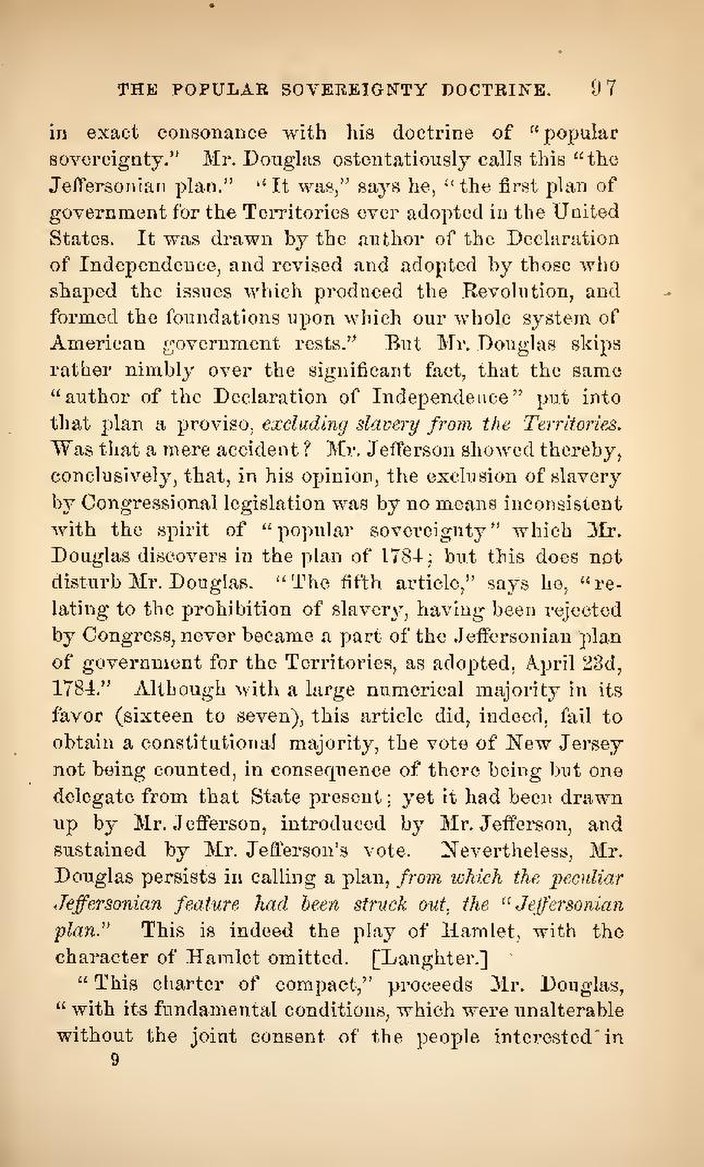in exact consonance with his doctrine of “popular sovereignty.” Mr. Douglas ostentatiously calls this “the Jeffersonian plan.” “It was,” says he, “the first plan of government for the Territories ever adopted in the United States. It was drawn by the author of the Declaration of Independence, and revised and adopted by those who shaped the issues which produced the Revolution, and formed the foundations upon which our whole system of American government rests.” But Mr. Douglas skips rather nimbly over the significant fact, that the same “author of the Declaration of Independence” put into that plan a proviso, excluding slavery from the Territories. Was that a mere accident? Mr. Jefferson showed thereby, conclusively, that, in his opinion, the exclusion of slavery by Congressional legislation was by no means inconsistent with the spirit of “popular sovereignty” which Mr. Douglas discovers in the plan of 1784; but this does not disturb Mr. Douglas. “The fifth article,” says he, “relating to the prohibition of slavery, having been rejected by Congress, never became a part of the Jeffersonian plan of government for the Territories, as adopted, April 23, 1784.” Although with a large numerical majority in its favor (sixteen to seven), this article did, indeed, fail to obtain a constitutional majority, the vote of New Jersey not being counted in consequence of there being but one delegate from that State present; yet it had been drawn up by Mr. Jefferson, introduced by Mr. Jefferson, and sustained by Mr. Jefferson's vote. Nevertheless, Mr. Douglas persists in calling a plan, from which the peculiar Jeffersonian feature had been struck out, the “Jeffersonian plan.” This, indeed, is the play of Hamlet, with the character of Hamlet omitted. [Laughter.]
“This charter of compact,” proceeds Mr. Douglas, “with its fundamental conditions which were unalterable without joint consent of the people interested in
